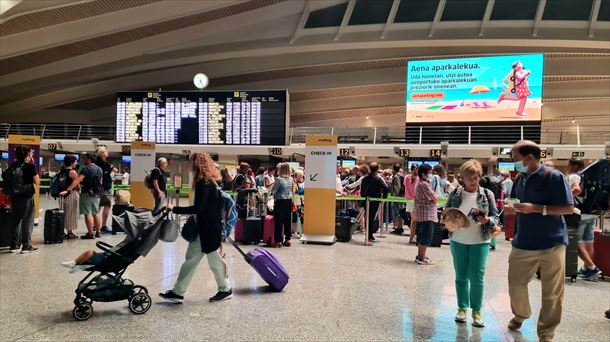Across Europe, locals are rebelling against the negative effects of mass tourism. On the popular Aegean holiday island of Santorini, a local politician has now attempted to request a lockdown of sorts – as the Greek idyll increasingly turns into a nightmare due to the influx of tourists.
Earlier this week, city council member Panos Kavallaris made people sit up with a Facebook post. “Another difficult day lies ahead for our city and island,” the post read. 17,000 people are expected from cruise ships – in one day. “We ask for your attention and limit our movements as much as possible!!!”
Post online for a short time only
The island’s residents are told to stay home while a tourist roller makes his way through the narrow streets. His message was less well received and was removed shortly afterwards. The message still resonates.
The incident has revived the debate about the impact of mass tourism on Santorini and the need for sustainable solutions. Across the EU, mass tourism is highest in the southern Aegean, in Greece.
A screenshot of the deleted message:
In the region with islands such as Santorini or Mykonos, there were an average of 110 overnight stays per inhabitant in 2022, according to Eurostat data.
Widespread criticism of tourists
It was not until June that the mayor of Santorini, Nikos Zorzos, settled the scores with the tourists. Water consumption has increased rapidly, living space is becoming scarce and the many travellers are leaving ‘irreparable damage’ to nature.
Cruise passengers in particular are criticized for hardly stimulating the island’s economy. They usually sleep and eat on board the ship. That is why Santorini now wants to take tougher action against the cruise industry. From 2025, a maximum of 8,000 cruise passengers per day will have access to the island, reports broadcaster RTL.
Housing shortage due to mass tourism
Many holiday regions in Europe are struggling with the consequences of mass tourism. Recently there have been protests by locals, especially in the Spanish Balearic Islands, who are concerned about rising prices on the housing market.
In the fight against the country’s housing shortage, Greece has tightened the rules for its so-called “Golden Visa.” The program, which allows non-EU citizens to obtain a five-year, renewable residence permit in exchange for investments, will see significantly increased investment amounts effective at the end of March.
Tourism as a powerful industry
In sought-after areas such as the capital region of Attica but also Thessaloniki, Mykonos, Santorini and islands with more than 3,100 inhabitants, the investment amount now amounts to 800,000 euros, while in other regions at least 400,000 euros is due.
Tourism is an important economic factor for many countries. According to Eurostat data, in 2022 the hospitality sector had the largest share of gross value added in the EU in Greece with 7.1 percent, followed by Croatia, Portugal and Spain. The EU average was 2.5 percent.
Source: Krone
I am Wallace Jones, an experienced journalist. I specialize in writing for the world section of Today Times Live. With over a decade of experience, I have developed an eye for detail when it comes to reporting on local and global stories. My passion lies in uncovering the truth through my investigative skills and creating thought-provoking content that resonates with readers worldwide.



